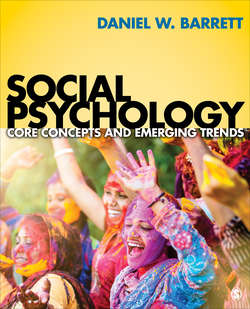Читать книгу Social Psychology - Daniel W. Barrett - Страница 53
На сайте Литреса книга снята с продажи.
Science Matters: Social Psychology Is A Science
ОглавлениеEach of us has theories about why people (including ourselves) do what they do. As meaning-seeking creatures, we have a propensity for generating explanations for thoughts, feelings, and behavior (Malle, 2011; Weiner, 1995). Typically we conceive these explanations based on observation of only limited aspects of a person’s life—perhaps we only see her at work or in class—or on what someone else reports about what he has seen (probably also based on scant evidence). These explanations for behavior are called lay theories, because they are created by ordinary people without advanced training in psychology and without using scientific methods (Beruchashvili, Moisio, & Heisley, 2014; Kruglanski, 1989; L. Ross, 1977). Lay theories seem like common sense, such as when we say “opposites attract.” But don’t “birds of a feather flock together?” Are “two heads better than one,” or do “too many cooks spoil the broth?” Lay theories like these are often contradictory and overly simplistic. Perhaps more importantly, the validity of lay theories is frequently undermined by the scientific evidence. As we discussed at the beginning of this chapter, social psychology is a science that carefully applies scientific methods in order to develop a thorough understanding of social phenomena. Social psychology provides evidence-based explanations that may contradict commonsense psychology.
